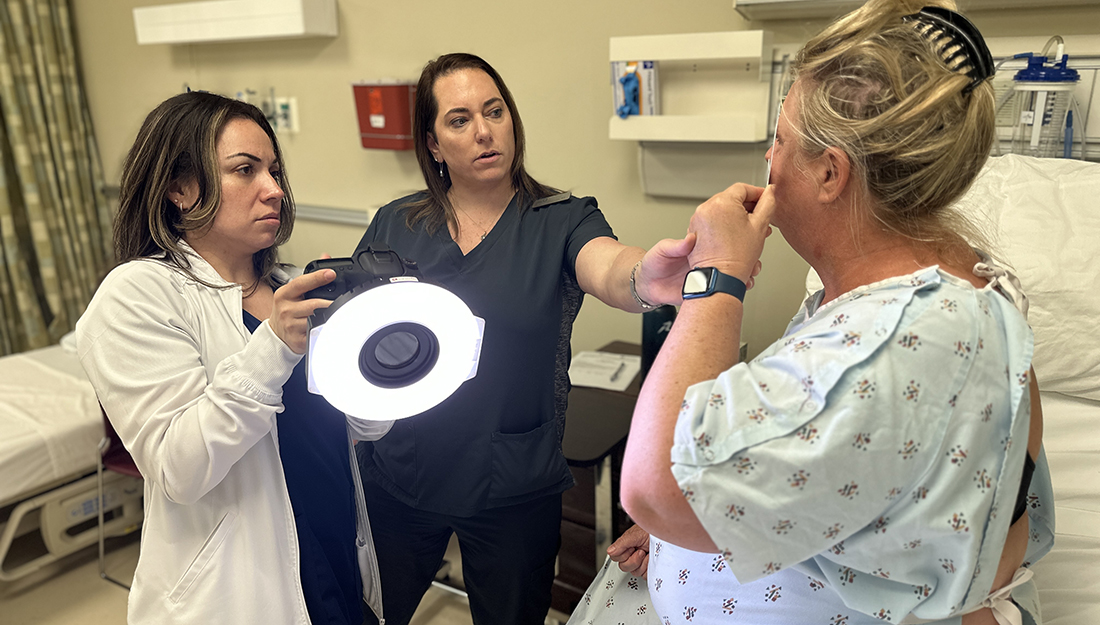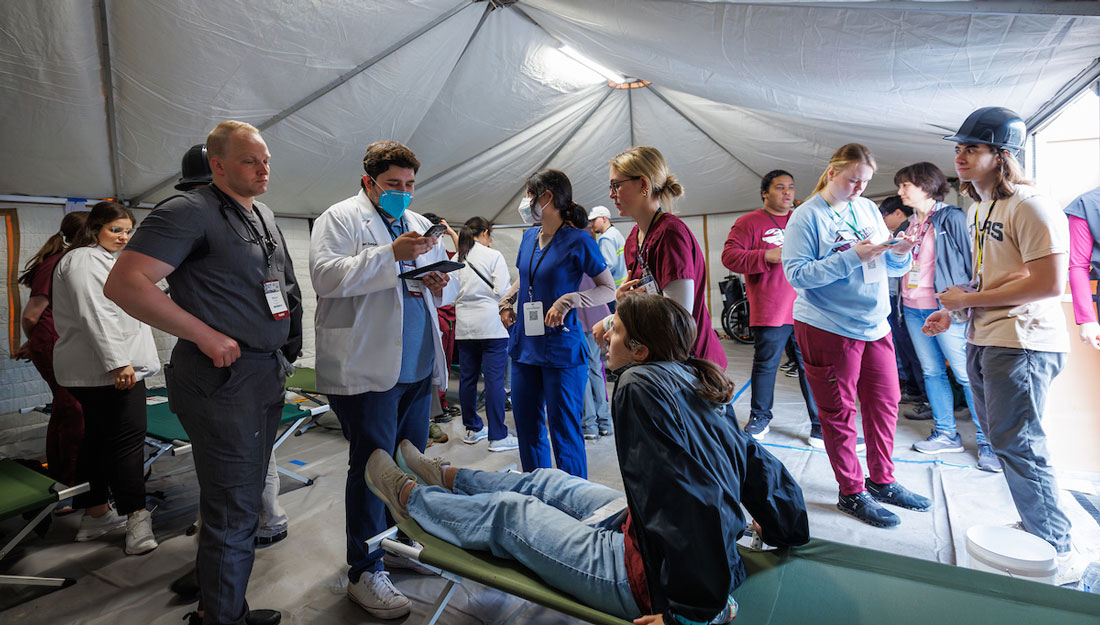Advanced nursing degree puts veteran at frontlines of leadership

A fire often begins as a small flame that, through life experiences, develops into a burning passion. For Capt. Jerry Webb ’12, that experience came with a deployment to Afghanistan.
A 2003 graduate of Blinn College’s associate degree nursing program, Webb worked as an operating room nurse at College Station Medical Center. To advance rank in the military, he decided to pursue a Bachelor of Science in Nursing (B.S.N.) and began coursework with the Texas A&M Health Science Center (TAMHSC) College of Nursing in 2009 as part of the college’s inaugural class.
“Initially, I began the program purely because it was a requirement for rank advancement,” he said. “I wasn’t exactly sure why I needed to get a degree that wouldn’t change my nursing ability or earning potential.”
During his first semester of baccalaureate coursework, Webb volunteered for deployment to Afghanistan, where he served as a medical officer in the U.S. Army.
“I knew my number was coming up soon, so I volunteered for this mission so that I could be on the front lines,” he said. “I knew the mission was going to be a mentor role, and as a nurse, you are always in the mind frame to teach.”
Webb led a team of five medics in assisting the Afghan National Army’s (ANA) 209th Corps to increase medical readiness throughout northern Afghanistan. He also served as the senior medical mentor to the 209th Corps Surgeon General and was personally responsible for providing guidance and recommendations to the highest-ranking Afghan military medical professional in the northern portion of the country.
“I provided oversight and advice to the ANA regarding its medical system in terms of medical doctrine, logistics, vehicle maintenance, building operations and maintenance, leadership growth and development, and overall medical capability,” he said.
It was this Army leadership experience that ultimately sparked a greater, more profound passion in Webb to continue his nursing education.
Upon returning from Afghanistan, Webb re-enrolled in the college’s RN-to-B.S.N. program, a transition program for associate degree nurses to pursue a baccalaureate education. The program is offered completely online, with part- and full-time options, allowing students to balance career and family while advancing their education.
“When I returned to the states, I attempted to pour myself back into the coursework and finish my B.S.N. as quickly as possible,” he said. “I was no longer just going through the motions of education but actually seeking the advanced knowledge that, through my experiences in Afghanistan, I knew was so pertinent.”
Webb also returned to his full-time position as an operating room nurse at the College Station Medical Center, juggling school and a family at the same time.
“The online aspect of the program was paramount to my success,” he said. “I vowed to not let my family, or work, suffer through continuing my education.”
To accomplish this, Webb worked during the day, spent evenings with his family and then began schoolwork after putting his kids to bed. He admits it wasn’t always easy, but it was worth it.
“As an associate degree nurse, I felt like I was a good nurse – good at my job, good at caring for individual people,” Webb said. “What I didn’t see until I started working on my B.S.N. is how my job as a registered nurse impacts people outside of my immediate circle. The quality of care I provide makes a difference in patients, their families and even other staff.”
Evolving standards among health care providers and nursing professional associations are making the B.S.N. more important than ever. In fact, in 2010, the Institute for Medicine called for increasing the number of baccalaureate-prepared nurses in the workforce to 80 percent by 2020. Currently, only 42 percent of nurses in Texas hold baccalaureate degrees.
“Research supports the relationship between the level of nursing education and both the quality and safety of patient care,” said Sharon Wilkerson, Ph.D., RN, CNE, dean of the TAMHSC-College of Nursing. “In addition, baccalaureate-prepared nurses have potential to climb the career ladder in nursing, as a bachelor’s degree is typically required for management positions.”
Webb is no exception. During his last semester in the B.S.N. program, he secured a job as the director of the Central Texas Endoscopy Center in Bryan, Texas. He manages the day-to-day operations of the center and is responsible for the safe, effective care given at the surgery center.
To provide an efficient bridge for associate degree nurses, the college also has articulation agreements in place with Blinn College and Austin Community College, with plans to formally partner with South Texas College this summer. The agreement creates an educational pathway for associate degree graduates at these educational institutions to go on to achieve a bachelor’s degree.
“These collaborative efforts benefit not only the students but also the community by providing additional education for local nurses,” Dr. Wilkerson said.
In June, another 45 associate degree students began coursework to achieve their B.S.N. – more than doubling the college’s RN-to-B.S.N. admissions from the previous year.
To find out more about the RN-to-B.S.N. program at the TAMHSC-College of Nursing, visit our website.
Media contact: media@tamu.edu


